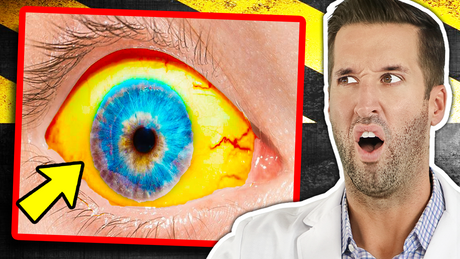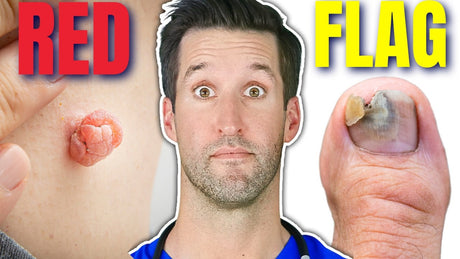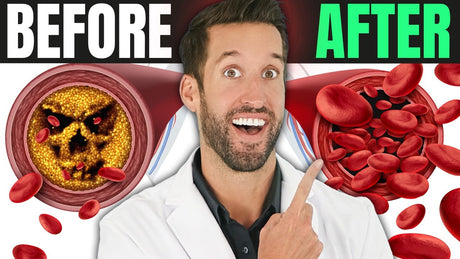Your Tongue – What It Says About Your Health
What if I told you that your tongue is your body's secret health communicator? While it might not be as glamorous as your eyes being the "window to the soul," your tongue has a lot to say when it comes to your overall health. Let's break down what your tongue might reveal and what you need to know about those often-overlooked signs.
1. A White Coating – What’s Growing on My Tongue?
If your tongue has a white, chalky coating, it could signal several things. A thin white coating is often normal, but if it’s thick and fuzzy, you might be dealing with oral thrush, a fungal infection caused by an overgrowth of Candida yeast. People taking antibiotics, those with diabetes, or those with weakened immune systems are more prone to this condition.
Alternatively, a persistent white tongue could indicate leukoplakia, a condition where mouth cells grow excessively, sometimes signaling precancerous changes. If your tongue has white patches that don't go away, make an appointment with a dentist or ENT to get checked.
2. Bright Red Tongue – A Sign of Deficiency?
If your tongue is inflamed, swollen, or bright red, it could indicate a deficiency in key nutrients like Vitamin B12, folic acid, or iron. These nutrients are vital for tongue health, and a lack of them can lead to a glossy, painful red tongue. Another possible cause for redness is scarlet fever, a bacterial infection that causes a strawberry-like tongue. A red tongue with a sore throat and fever is a medical red flag—seek immediate care.
Additionally, geographic tongue, which causes red patches in random areas of your tongue, might be due to stress, spicy foods, or vitamin deficiencies. Chillax from Life Happns may help you manage stress, supporting your overall health.
3. A Black, Hairy Tongue – What’s Happening Here?
Though it sounds alarming, black hairy tongue is actually a buildup of dead skin cells, bacteria, and food debris on your tongue. This condition is often caused by smoking, excessive coffee or tea consumption, and poor oral hygiene. The fix? Regular tongue scraping, staying hydrated, and cutting back on coffee.
If black patches don't go away, however, it could point to a fungal infection or even side effects from medications. It’s important to consult with a healthcare provider if this persists.
4. Smooth, Pale Tongue – What’s Missing?
A smooth, pale tongue often suggests a Vitamin B12 or iron deficiency—both of which are linked to anemia. Anemia can cause fatigue, dizziness, and coldness, which may also coincide with a lack of taste buds on your tongue. If you experience these symptoms, it’s worth checking your iron and B12 levels.
5. Deep Grooves and Cracks – Is This Normal?
Tongues with deep grooves, cracks, or fissures often have a condition known as fissured tongue, which is typically harmless. However, if these cracks suddenly appear, it could signal a fungal infection, dehydration, or inflammatory conditions like psoriasis. If your tongue is sore or burning around the cracks, it’s best to see a healthcare provider.
6. Purple or Blue Tongue – A Serious Concern
If your tongue turns blue or purple, it could indicate poor circulation, lung disease, or heart issues. A condition called cyanosis—caused by low oxygen levels in the blood—can turn your tongue and lips blue. If you experience this with dizziness, weakness, or shortness of breath, get immediate medical attention.
7. A Yellow Tongue – What Does It Mean?
A yellow tongue usually points to a buildup of bacteria, which can result from smoking, dehydration, or dry mouth. While typically harmless, if the yellow color persists, it could indicate liver issues such as jaundice, where excess bilirubin builds up in your body. If your tongue or eyes appear yellow, it’s time to see a doctor.
8. A Swollen Tongue – A Medical Emergency
If your tongue suddenly swells up significantly, it could be a severe allergic reaction known as anaphylaxis, which is life-threatening. This can occur after eating certain foods or taking medications. If your tongue swells and you're having trouble breathing, seek emergency care immediately.
On the other hand, chronic tongue swelling could point to conditions like hypothyroidism or other inflammatory diseases. If you notice this happening without any obvious cause, it's best to consult with a healthcare professional.
How to Keep Your Tongue Healthy
To maintain a healthy tongue, focus on hydration, as a dry tongue can encourage bacteria buildup and bad breath. Tongue scraping is an essential step you shouldn't skip—using a scraper will help remove bacteria and food debris.
Additionally, nutrition plays a crucial role in tongue health. Ensure you’re getting adequate amounts of B vitamins, iron, and zinc in your diet. If you're struggling with deficiencies or stress, consider incorporating high-quality supplements like Chillax or Do Not Disturb from Life Happns. These supplements are designed to reduce stress and promote relaxation, helping you maintain overall health.
Chillax is formulated with L-theanine, magnesium, and saffron to help regulate stress levels and promote calm.
Do Not Disturb is a natural sleep aid that helps you unwind without melatonin, featuring bioavailable magnesium, passionflower, and evodia to enhance your sleep quality.
Both of these products are available on Life Happns and Amazon, so check them out for better health and well-being.
Conclusion
Your tongue can tell you a lot about your health, from vitamin deficiencies to more serious conditions. Regular monitoring and paying attention to any unusual changes in your tongue can help you catch potential health issues early. If you experience any concerning symptoms, don’t hesitate to seek professional medical advice.
Want to keep your tongue—and body—healthy? Consider integrating Life Happns' health supplements like Chillax and Do Not Disturb into your routine. They can help manage stress and promote restful sleep, essential components of overall wellness.
Stay healthy, and remember to care for every part of your body—even the ones you least expect!
Studies & References
- Oral Thrush: National Institutes of Health - Oral Thrush
- Scarlet Fever: Centers for Disease Control and Prevention - Scarlet Fever
- Fissured Tongue: American Academy of Oral Medicine - Fissured Tongue
All information on the Life Happns website is for informational purposes only, and is not intended to be used for medical advice, diagnosis, or treatment. Always seek the advice of your physician or other qualified health provider with any questions you may have regarding a medical condition or before starting any new supplement or health regimen.








